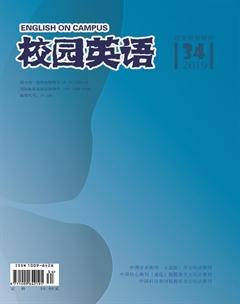Study on Language Negative Transfer in Terms of Standard Chinese Effects on English Writing
【Abstract】In the process of second language acquisition, the first language will transfer to the second language. Transfers are divided into positive transfer and negative transfer. This paper will analyze the negative transfer of standard Chinese to English writing in terms of vocabulary selection, syntax and cultural thinking, and propose solutions in terms of teachers, teaching methods and the language environment.
【Key words】second language acquisition; negative transfer; English writing; Standard Chinese
【作者簡介】霍暢暢,西北民族大學。
1. The definition and manifestation of language negative transfer?
“Language transfer” refers to a phenomenon that learners always have the tendency to use their first languages knowledge to express their thoughts when they learn or use the target language. In a nutshell, the difference between the first language and the second language and the interference of the first language will adversely affect to second language acquisition, which is called negative transfer of first language.
2. The impact of negative language transfer on English writing skills
2.1 Collocation
There are many collocations in English, but not in Standard Chinese. Therefore, it is conceivable that numerous lexical errors occur in the using of phrase collocation, including improper collocation of prepositional phrases and verb phrases, etc. For example, there is a mistake made by certain students——“some factories create noise”, “create noise” is a kind of “Chinglish”. The right form should be “make noise” instead of “create noise”.
2.2 Misuse of pronoun “you”
In English, the personal pronoun “you” refers to the person or persons who are listening to you, however, in Standard Chinese, “you” can be either a hearer or an arbitrary person. If there is no one specific person, it should be expressed as “anyone” or “one” in English writing.
Example: “I think you can see how desired the need is for China to develop the advanced technology for environmental protection.”
In this sentence, “you” obviously comes from the influence of Standard Chinese, since “you” in Standard Chinese can point to everyone. In this sentence, “you” should be changed to “one”.
2.3 “We” and “I”
The Chinese prefers to use “we” as the first person, while in English uses “I” more often. For example, “Whether children want to live with parents or not when they grow up, we should respect their wish and help them to make their own decision, which is our responsibility.”
There are two ways to improve this sentence, one is to change “we” to “I” and another is to use the passive voice. The sentence can be corrected as“ Whether children want to live with parents or not when they grow up, their choices should be respected. ”
2.4 Proverbs and slangs
Some people like to use proverbs and slangs in their writing. Proverbs and slangs of different nationalities have their own historical background, so other nationalities are not easy to understand. For example, “Almost all people think that the other mountain is higher than the one.” is difficult for people in English counties to understand. It will be easier for the people in English countries to understand that the English proverb “the grass is greener on the other side.”
3. Solutions of the Negative Transfer of Standard Chinese in English Writing
First of all, in the process of writing teaching, teachers must find students mistakes and help them to correct them. Secondly, students are encouraged to read more English original works in order to understand some idiomatic expressions in English and apply them to writing. Thirdly, teachers should train students to use English thinking to conceive English compositions. eachers should make full use of multimedia and other modern teaching methods to provide students with an authentic language environment and enhance their understanding of foreign language.
4. Conclusion
Negative transfer to vocabulary, syntax, text and mode of thinking would not be ignored. In the process of teaching English writing, teachers should attach the importance to and adopt effective strategies to get rid of Chinglish and improve students writing ability. Consequently, teachers should try their best to create an English learning environment for students. Only in this way can teachers help students gradually reduce the occurrence of negative transfer, thus improving students English writing level.
References:
[1]石英.母語負遷移——中國中高級學習者英語寫作典型錯誤分析[J].海外英語,2019(08):1-2.

